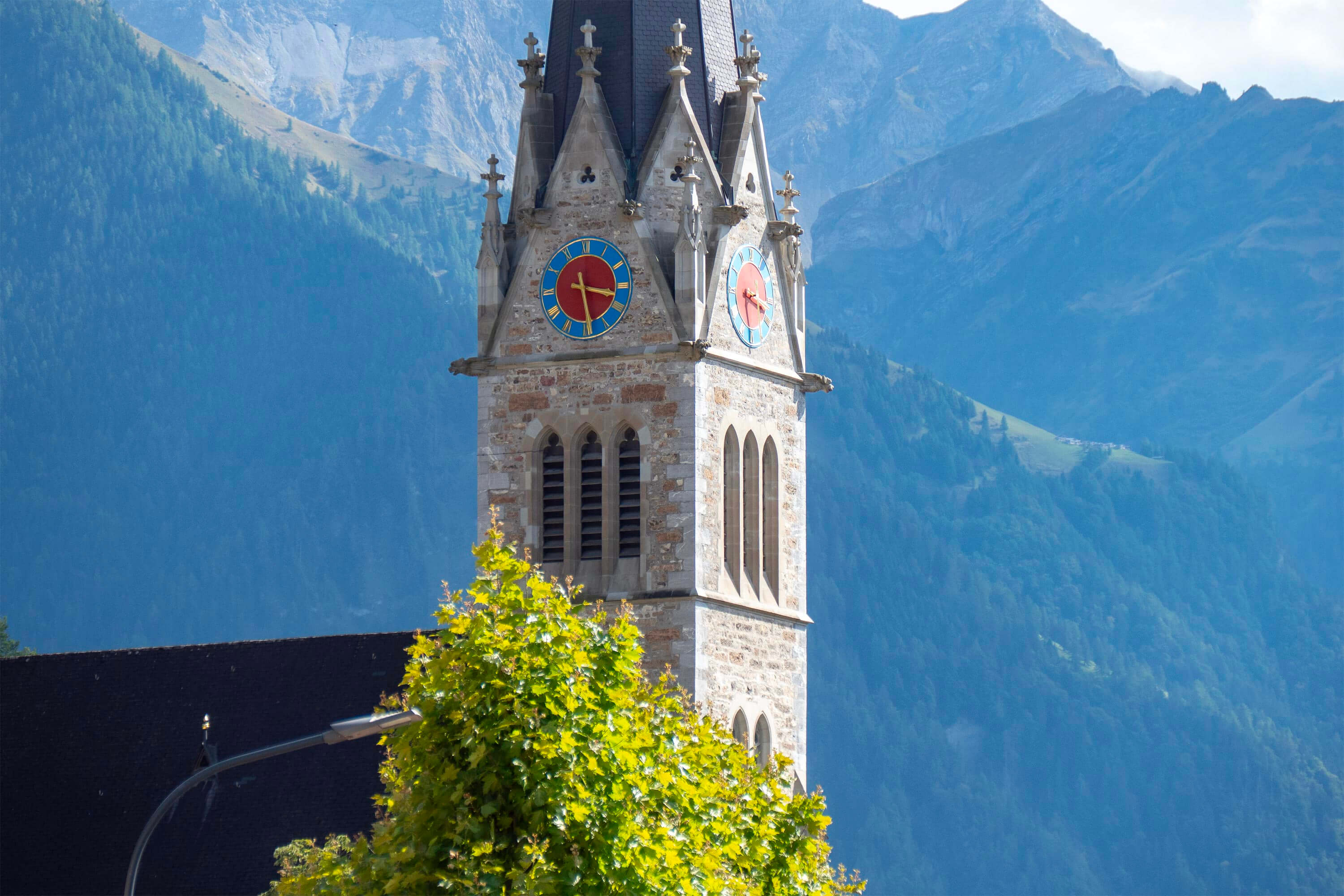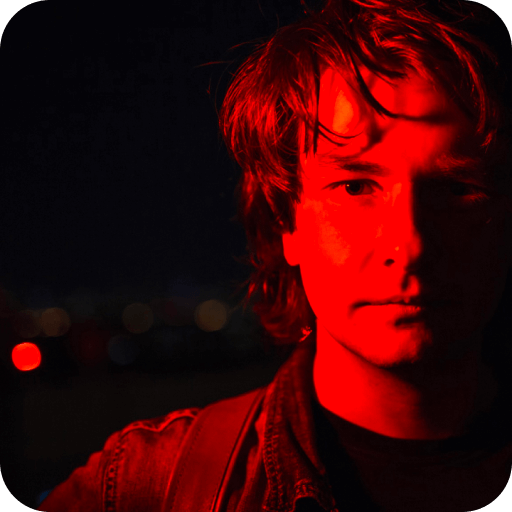Liechtenstein
The list of the most free and wealthiest countries in the world is not led by Switzerland or America. This honor has fallen to a tiny country that has no natural resources nor even an airport.
It has only 40,000 inhabitants, and its form of government is a monarchy. The country is ruled by a prince-anarchist, and it is named after his surname: Liechtenstein.
Intrigued?
Freedom + democracy = monarchy
Few people genuinely love absolute monarchies. Kings seem like relics of the Middle Ages, and the direct rule of a country makes the monarch unaccountable to the people. The author wouldn’t want to defend kings, but would like to talk about liberal democracy.
Overall, liberal democracy is a great thing, but it has an innate flaw. The thing is that the power transition, while protecting against despotism, turns any leader into a populist.
The term of the president or prime minister is limited, and the country does not belong to him: he is simply hired as a temporary manager. And if so, he is not responsible for the country after his term ends. He can make plenty of promises but is not obliged to fulfill them!
After all, it always starts with another presidential candidate promising to solve all the population’s problems. Well, as usual: give land to peasants, pay out high pensions, and provide free cancer treatment. During the election campaign, of course, he doesn’t explain at whose expense all this will be done. But after the elections, it turns out that either taxes need to be raised or debt needs to be taken; and some promises turn out to be sweet dreams. So then taxes are high, the debt exceeds GDP, and it seems like there is even free healthcare and high pensions. Must go for a second term!
Already after the second term (and sometimes even later), it becomes clear that high taxes hinder the economy, debts need to be repaid, and the generous pension has spoiled the population so much that they stopped having children – no one to pay the pension tax. In principle, all of this could have been thought from the start and another plan proposed: give the most basics, and beyond that – figure it out on your own. Good luck in the elections with such a program!
Unlike the president, the king doesn’t need to worry about pre-election ratings, as the whole country is his property. Therefore, he is directly interested in the prosperity of his country, especially since it needs to be passed through inheritance. It has been found that in a healthy monarchy, the treasury operates as a separate entity from society, earning income by providing services to the population and engaging in foreign trade, such as oil. The monarch is barely interested in high taxes that impose lots of obligations, and certainly doesn’t want to take debts from other countries.
Hence we have low taxes and small government debt in countries like Dubai and Saudi Arabia. In general, most modern monarchies have a GDP per capita similar to that of Europe, but the state revenue from taxes does not exceed 15%. Wealthy democracies earn as much as 40% from taxes because they cannot rely on other sources of income.
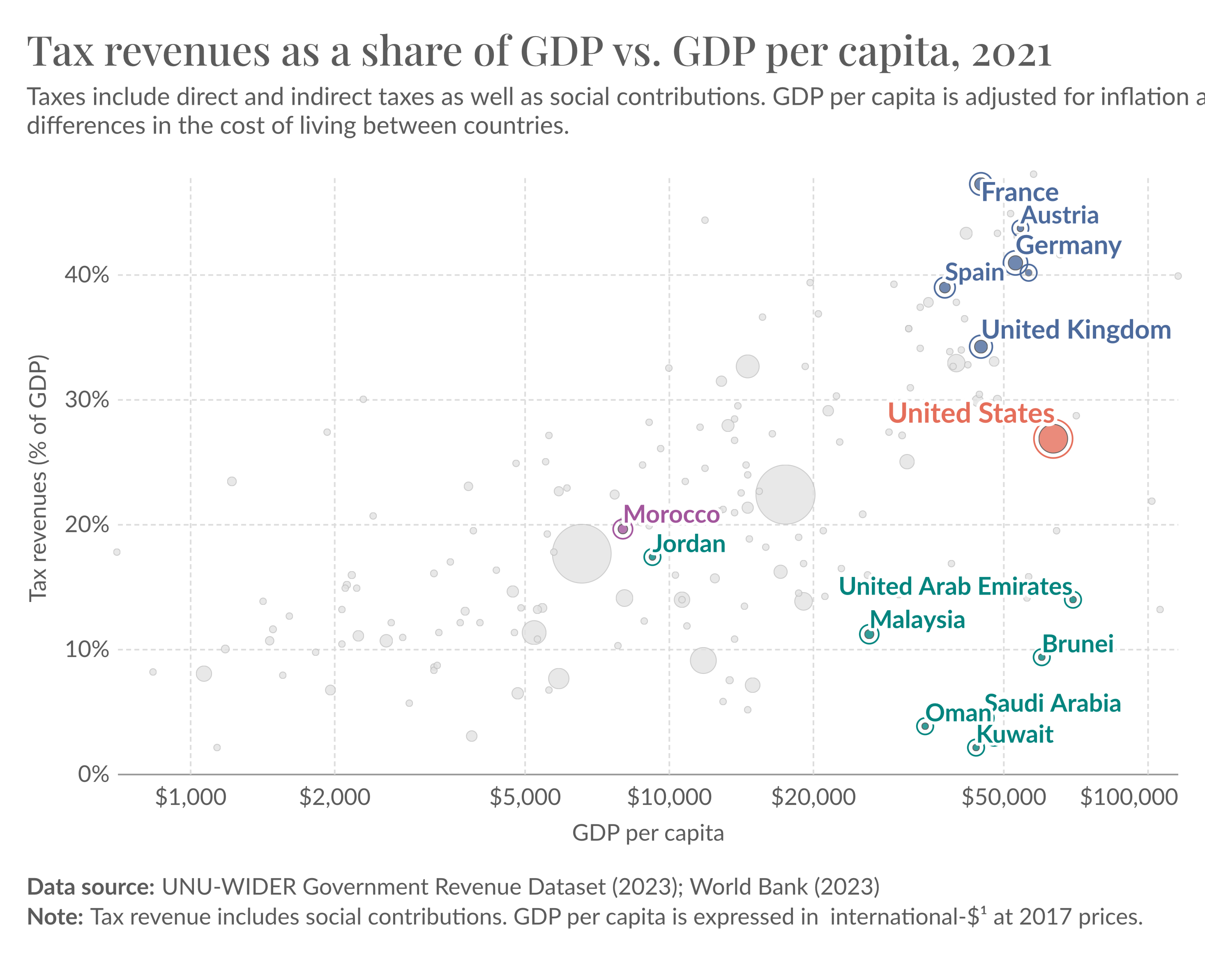
Nowadays, there are hardly any monarchies left in the world, and most of them are oil-rich countries. That’s why it’s very easy to attribute all prosperity to oil. One can even dreamily sigh, “If only Russia had oil.”
But democracy in Europe hasn’t been forever. It’s only been a little over a hundred years. And on the charts, it is clear that the increase in taxes began precisely after monarchies disappeared from the map as a result of World War I.
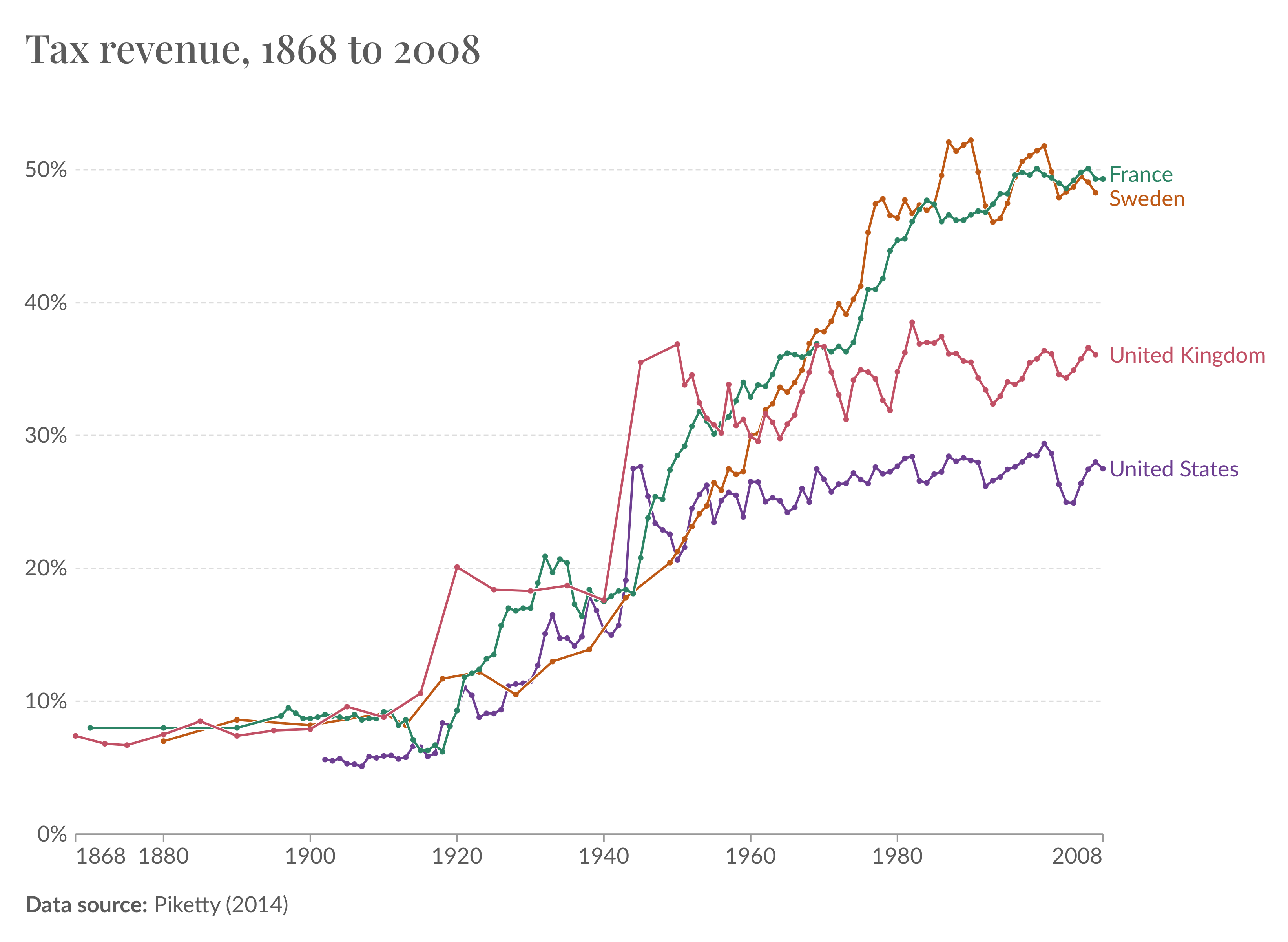
Fortunately, one European monarchy did manage to survive. And that is Liechtenstein.
Although parliamentary elections are held in Liechtenstein, in reality, the country is closer to a monarchy than to a democracy. For example, the prince can dissolve the parliament elected by the people, manually appoint judges, or veto any law. In symbolic monarchies like Britain, there is nothing of the sort; there, the parliament has authority over the king.
So, by an incredible coincidence, Liechtenstein has the lowest taxes in Europe! For example, while in Denmark the maximum income tax reaches a staggering 56%, in Liechtenstein, even the wealthy are taxed no more than 23%.
In Liechtenstein, the GDP per capita is an incredibly high figure: 184 thousand dollars per person! In Denmark, it’s only 66 thousand, and in Germany, it’s even lower at 48 thousand, which is almost 4 times less. You can even compare it to cities, and still not reach such a level.
Moreover, the leader of the country, Prince Hans-Adam II, is a pure-blooded libertarian and, furthermore, an anarchist. In some democracies, one could even face a criminal charge for writing what he does.
Of course, there is no “complete libertarianism” in Liechtenstein, the reader is right. But just like communism is unreachable, its components such as an 8-hour workday, minimum wage, and “social benefits” can be found in almost any country.
That’s how Liechtenstein, leaving democracy as a symbolic “popular rule,” established a full-fledged monarchy in the heart of Europe, became the wealthiest country in the world, and came closest to freedom.
Vaduz
The capital of Liechtenstein is the tiny city of Vaduz, which can be seen in its entirety from the nearest hill. Oh, my sweety.
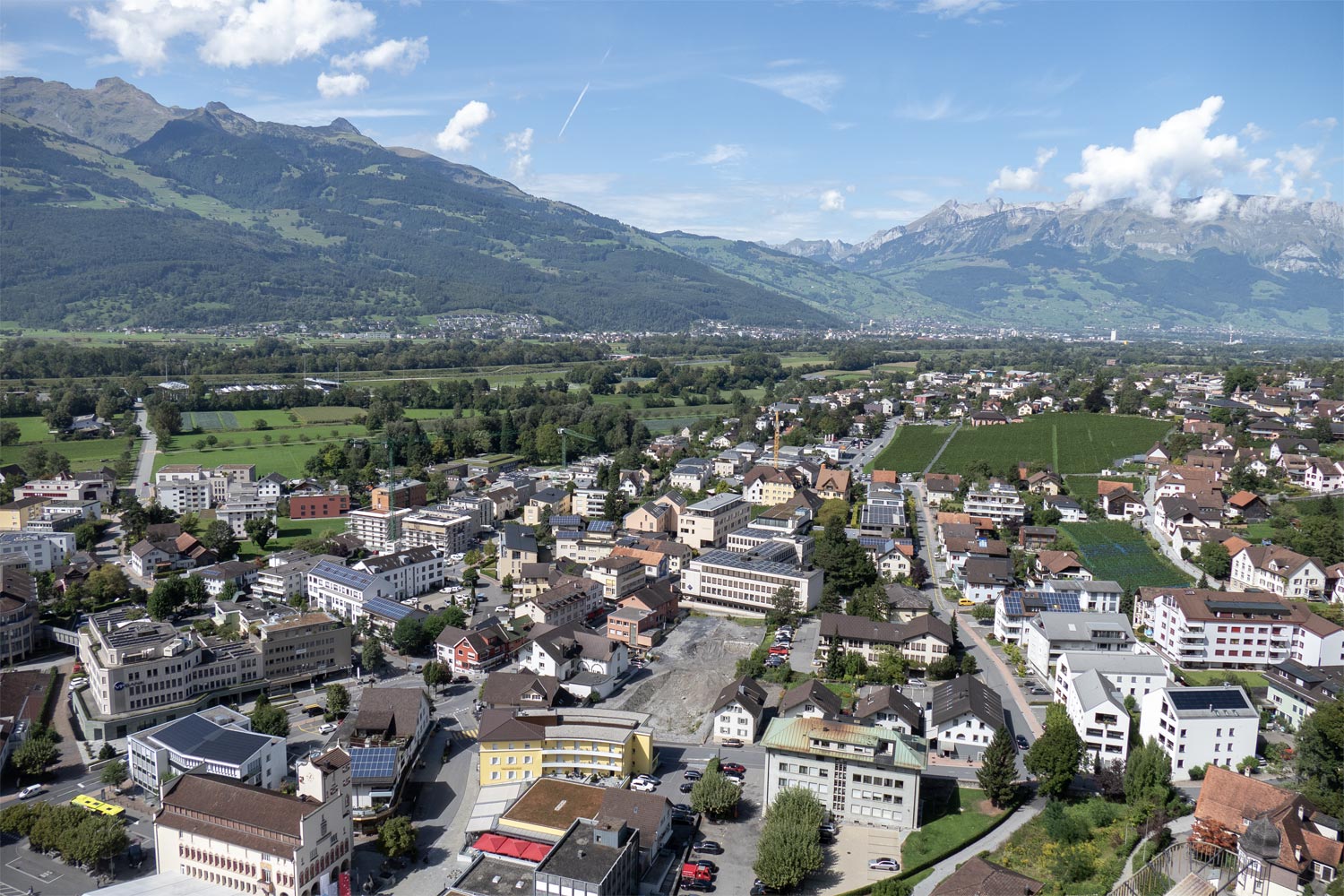
On the hill stands the castle, the current residence of the prince. Don’t rush to compare it with Obama’s mansion in Martha’s Vineyard. The castle was built with the personal funds of the Liechtenstein family, not stolen taxes.
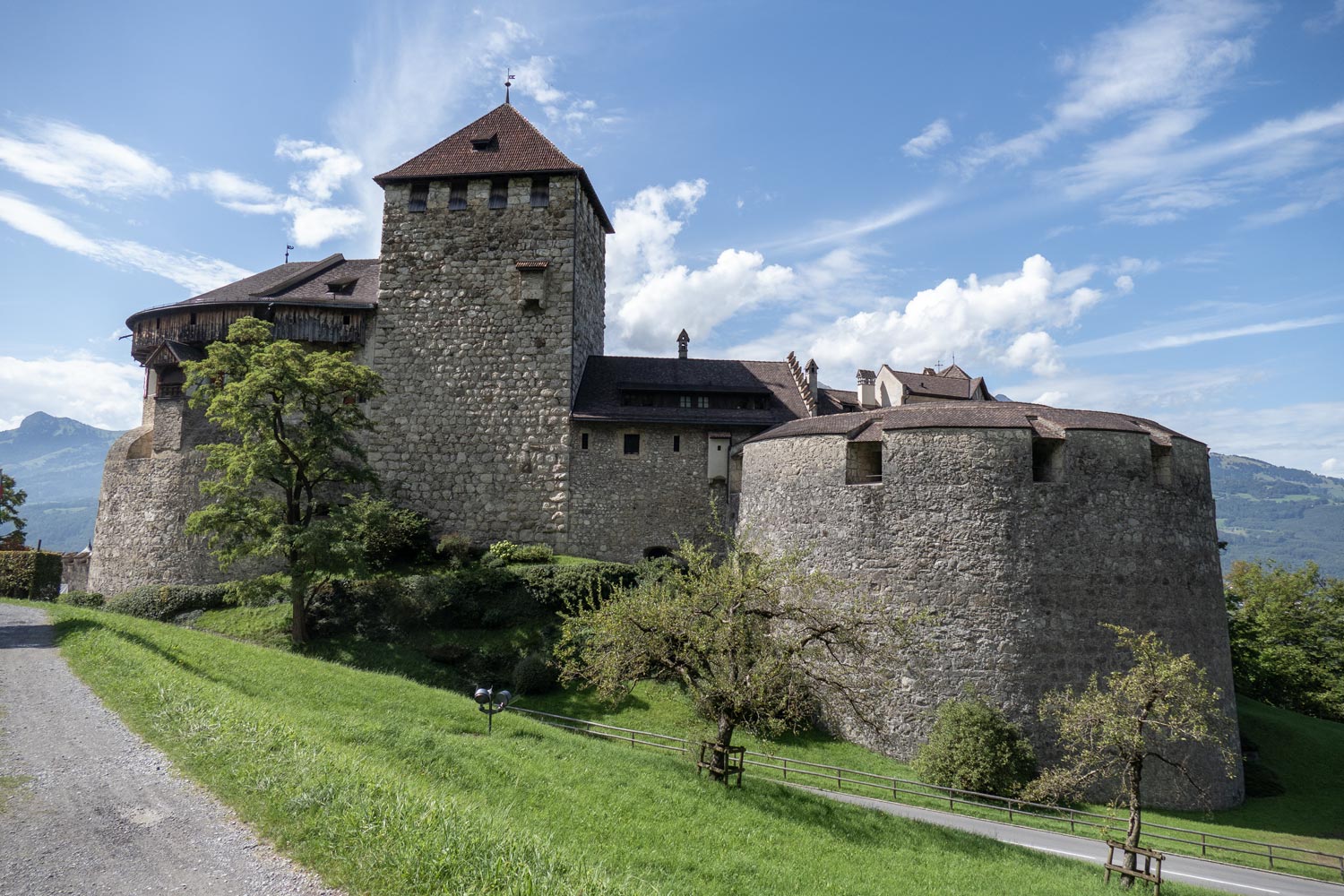
The ruling family lives right in this castle. Just like in the Middle Ages. Unfortunately, due to this reason, it’s not possible to get inside, but you can look through the fence.
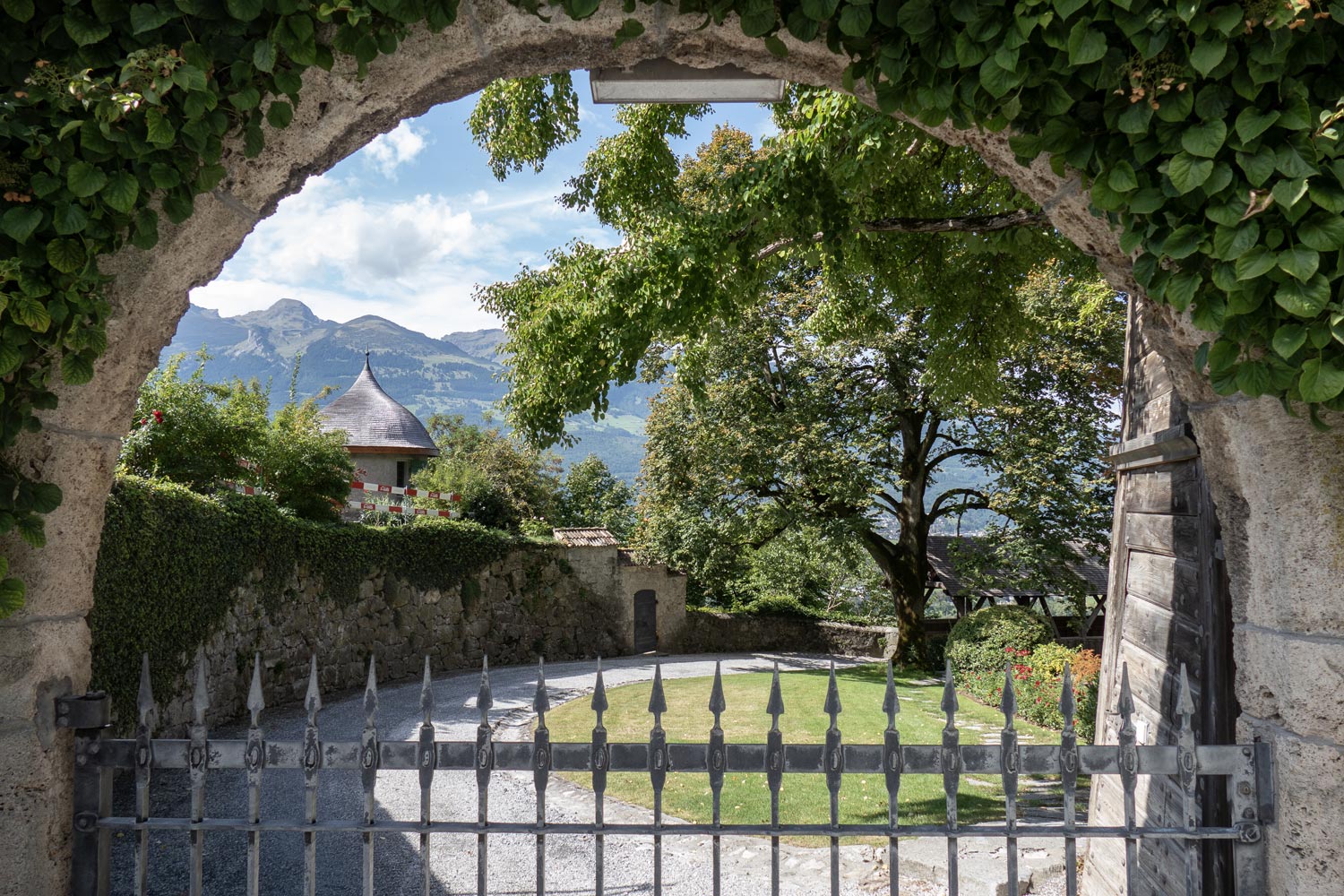
From the city, the castle looks like a watchtower. Day and night, the sun-faced prince watches over the well-being of Vaduz from his residence.
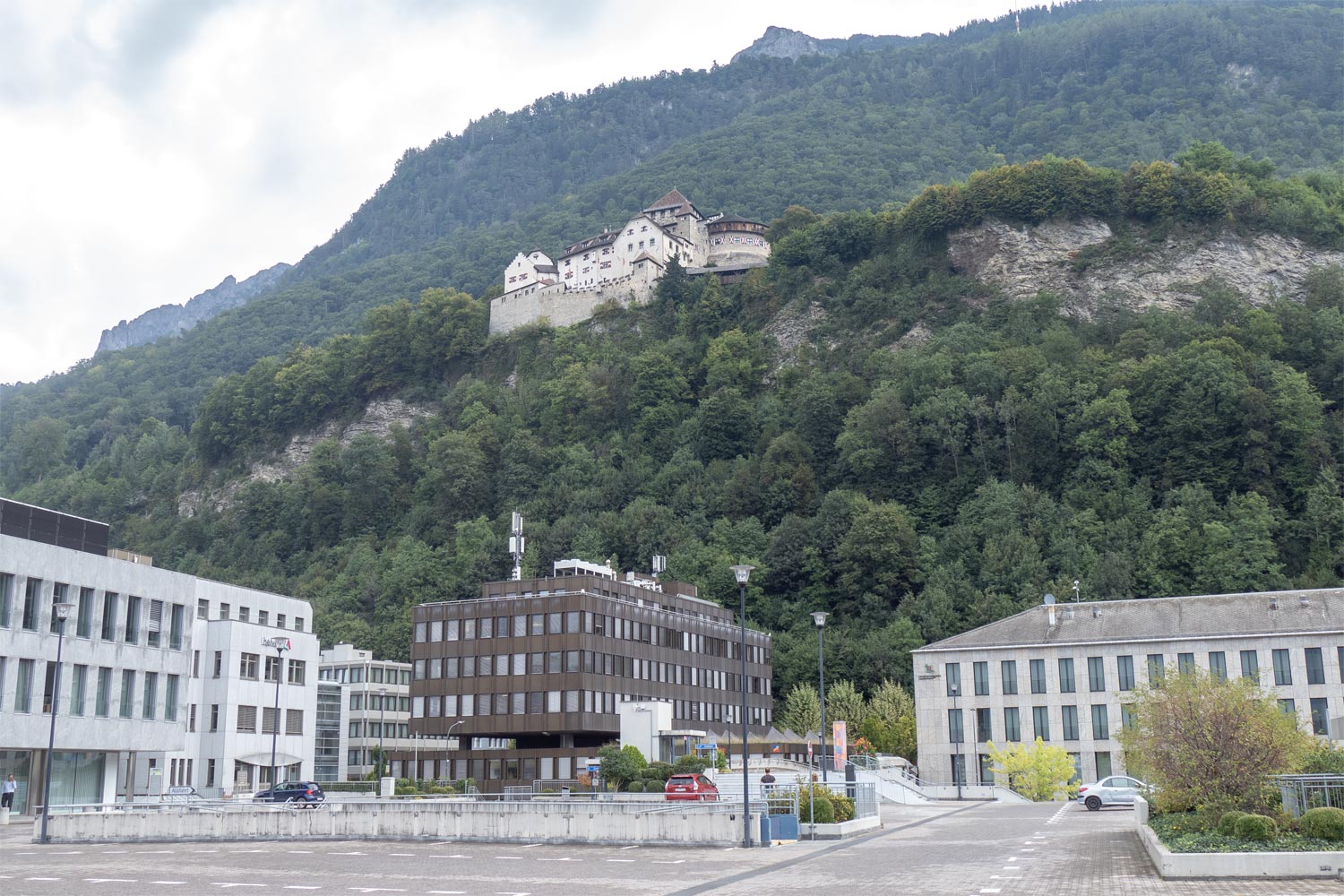
Personally, I have no complaints about the prince. The castle has stood in this location since the 12th century. The wealthy Austrian Liechtenstein family bought it along with the land from the previous bankrupted family. Then, following the glorious European tradition, they proclaimed an entire state in the place of this hypertrophied summer home.
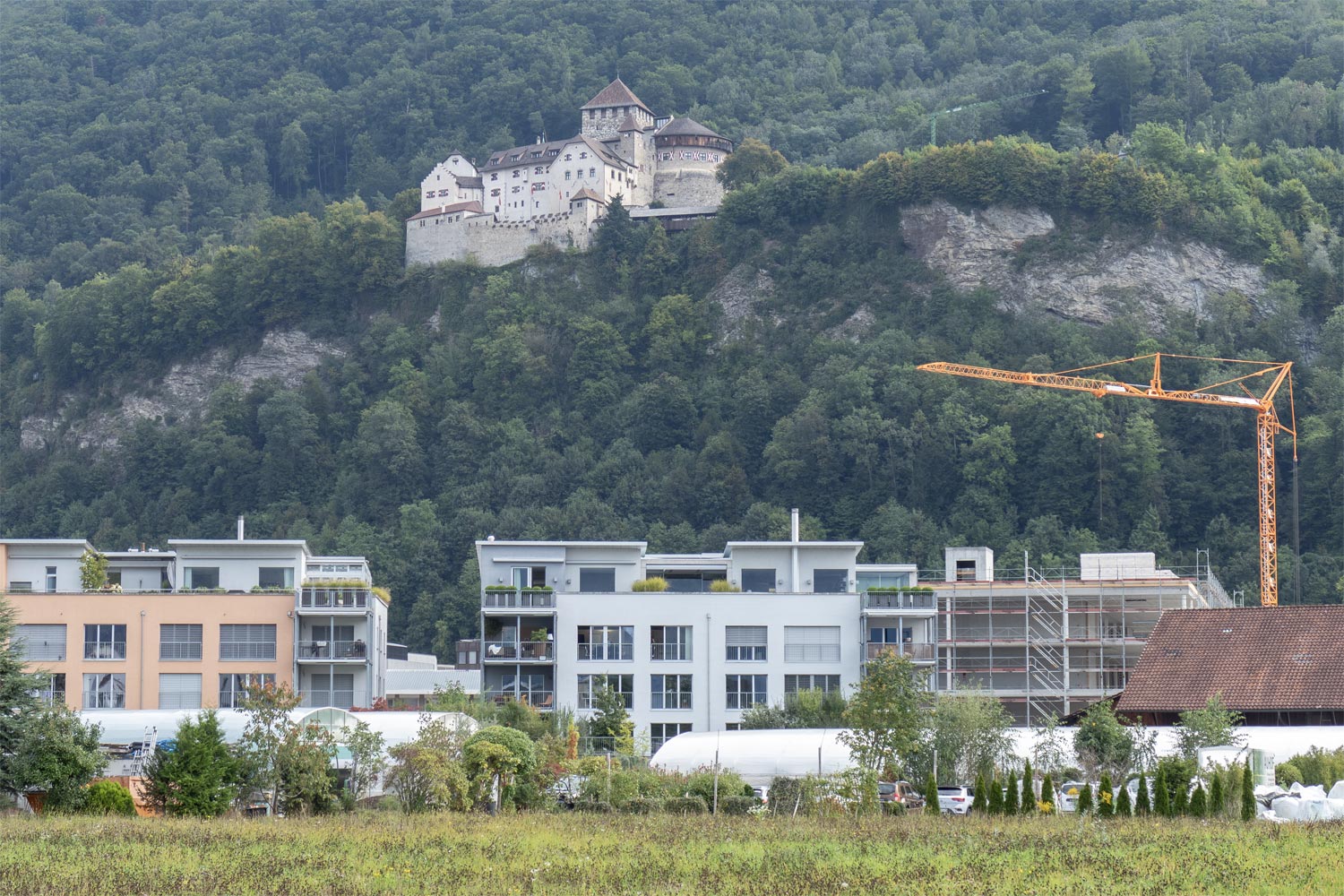
Wanna dig into the origin of the Austrian family’s funds? Well, let’s first take a look at your tax form, oops.
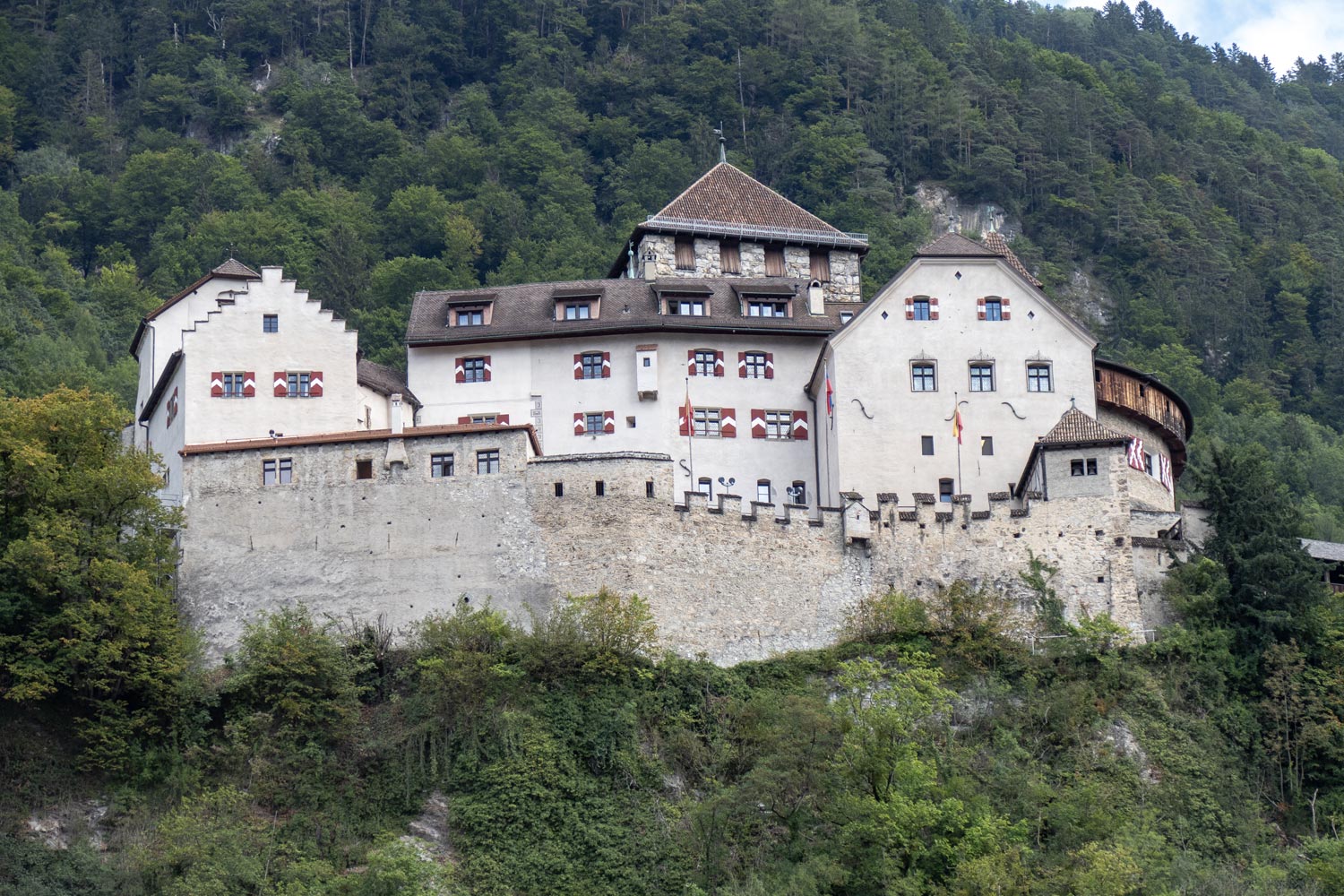
So, what does the city of Vaduz represent, purchased by the Liechtensteins along with the castle? It is an absolutely charming town nestled between mountains, exuding the freshness and tranquility of the morning.
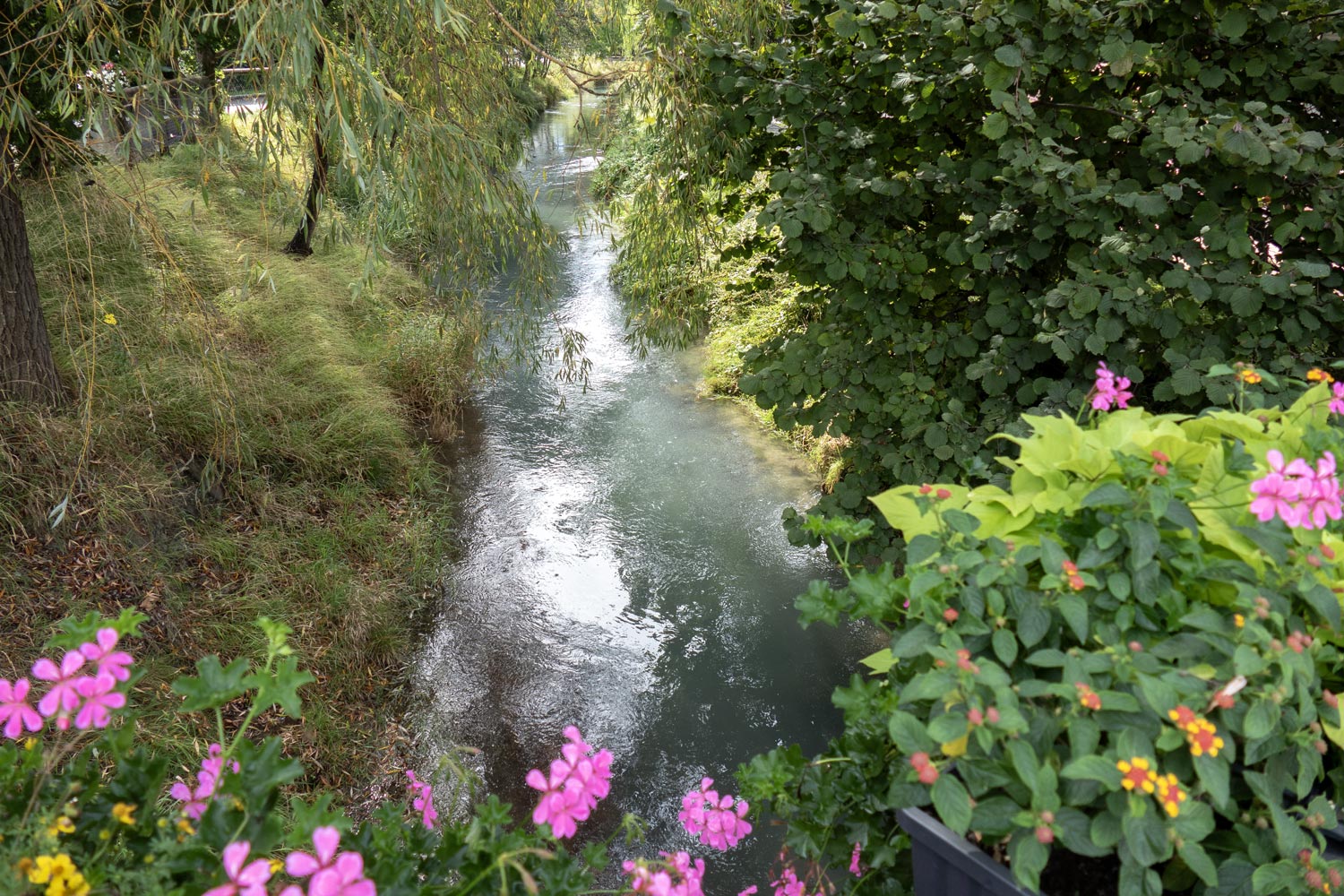
It is so beautiful here that I’m not even sure if it’s legal.
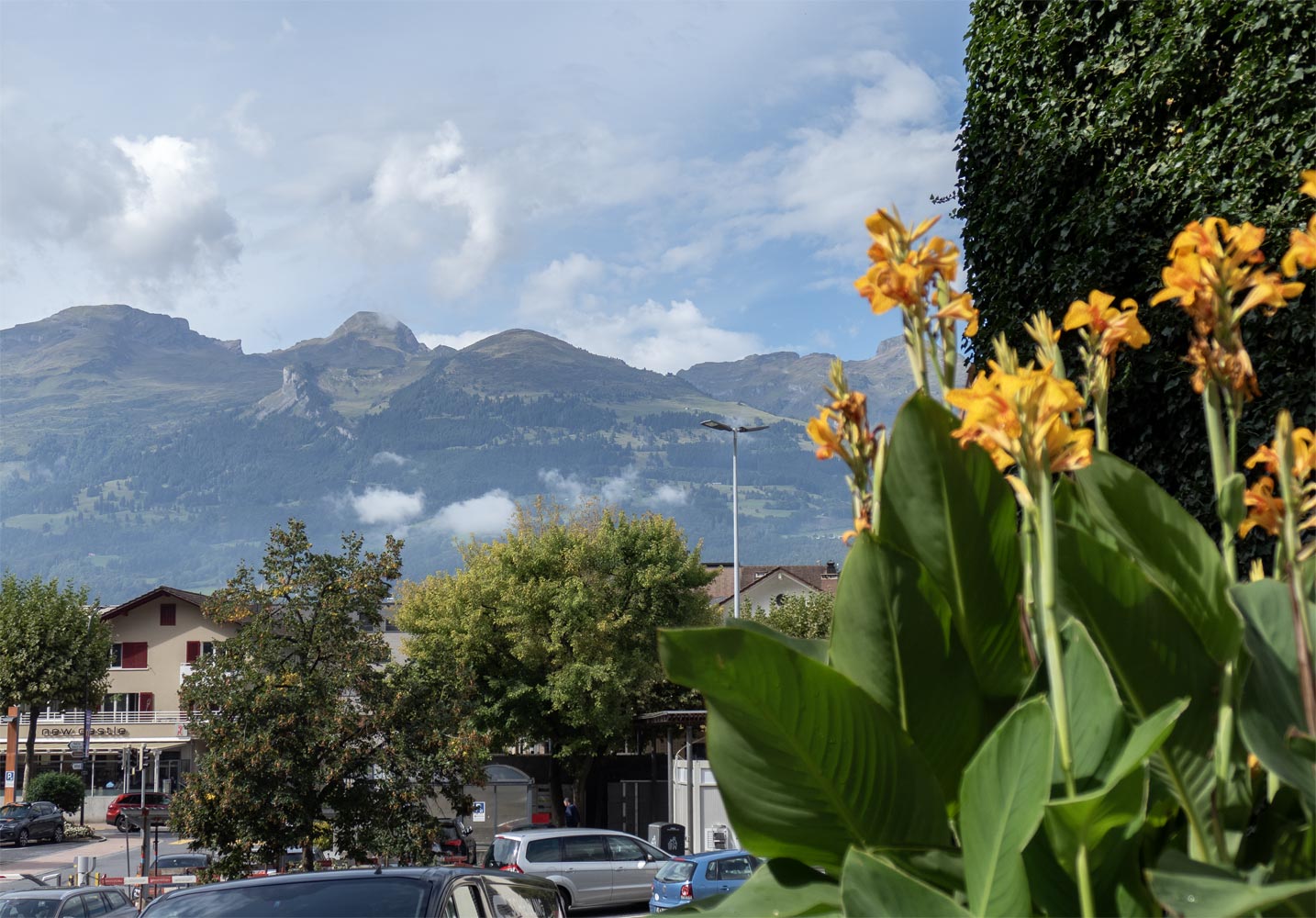
Absolutely nothing happens in Vaduz, and nobody is in a hurry anywhere.
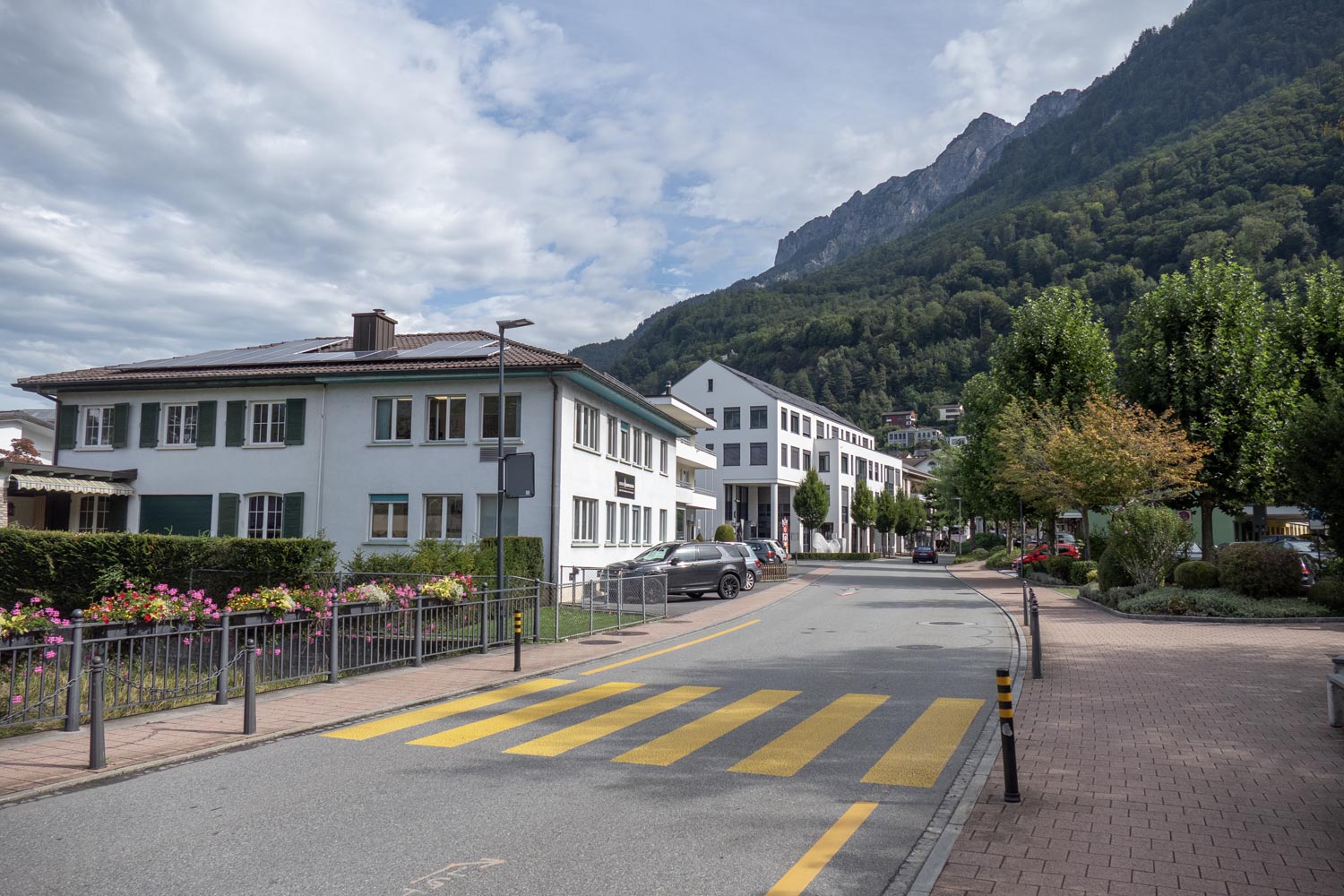
Green parking spaces.
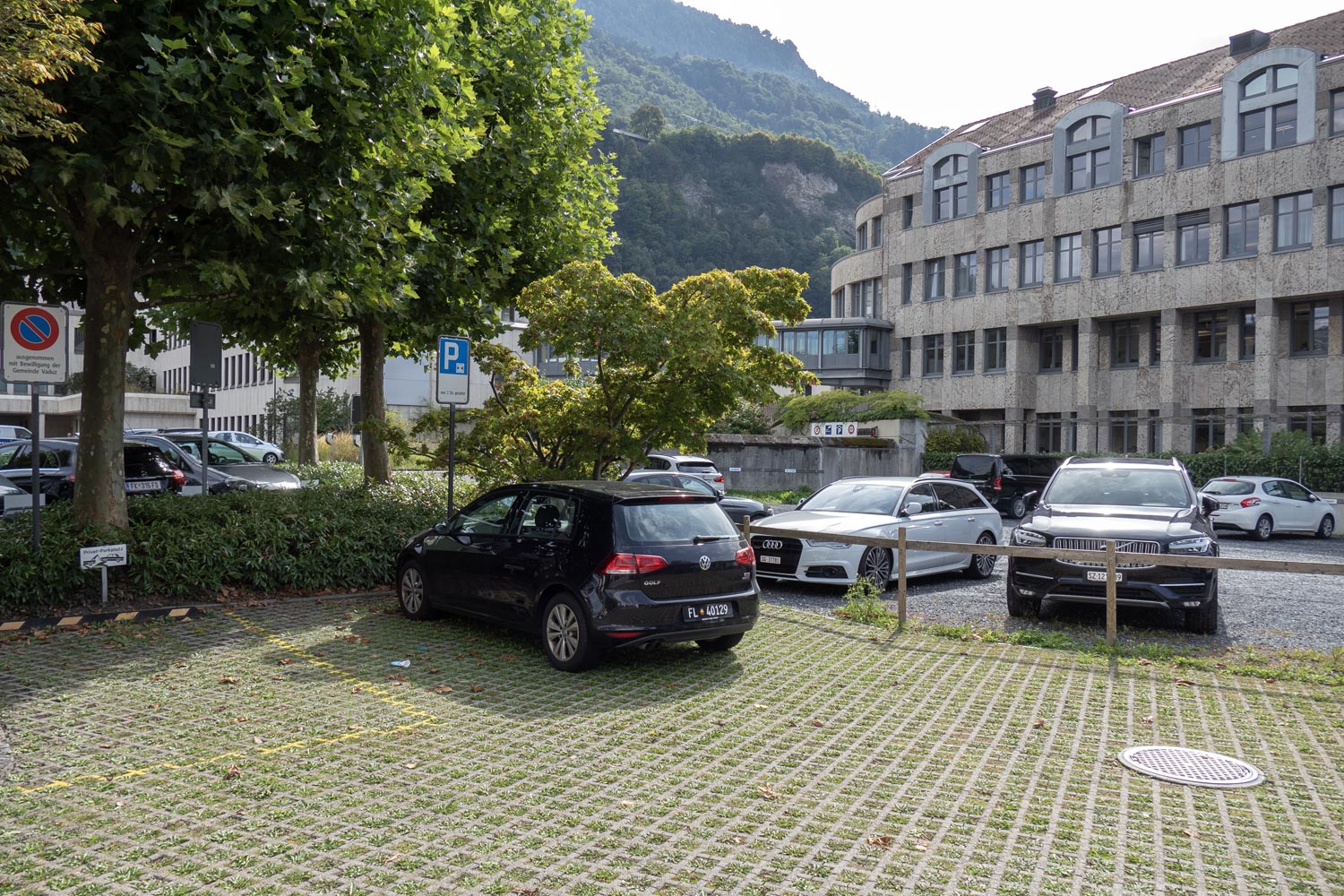
Cozy little houses.
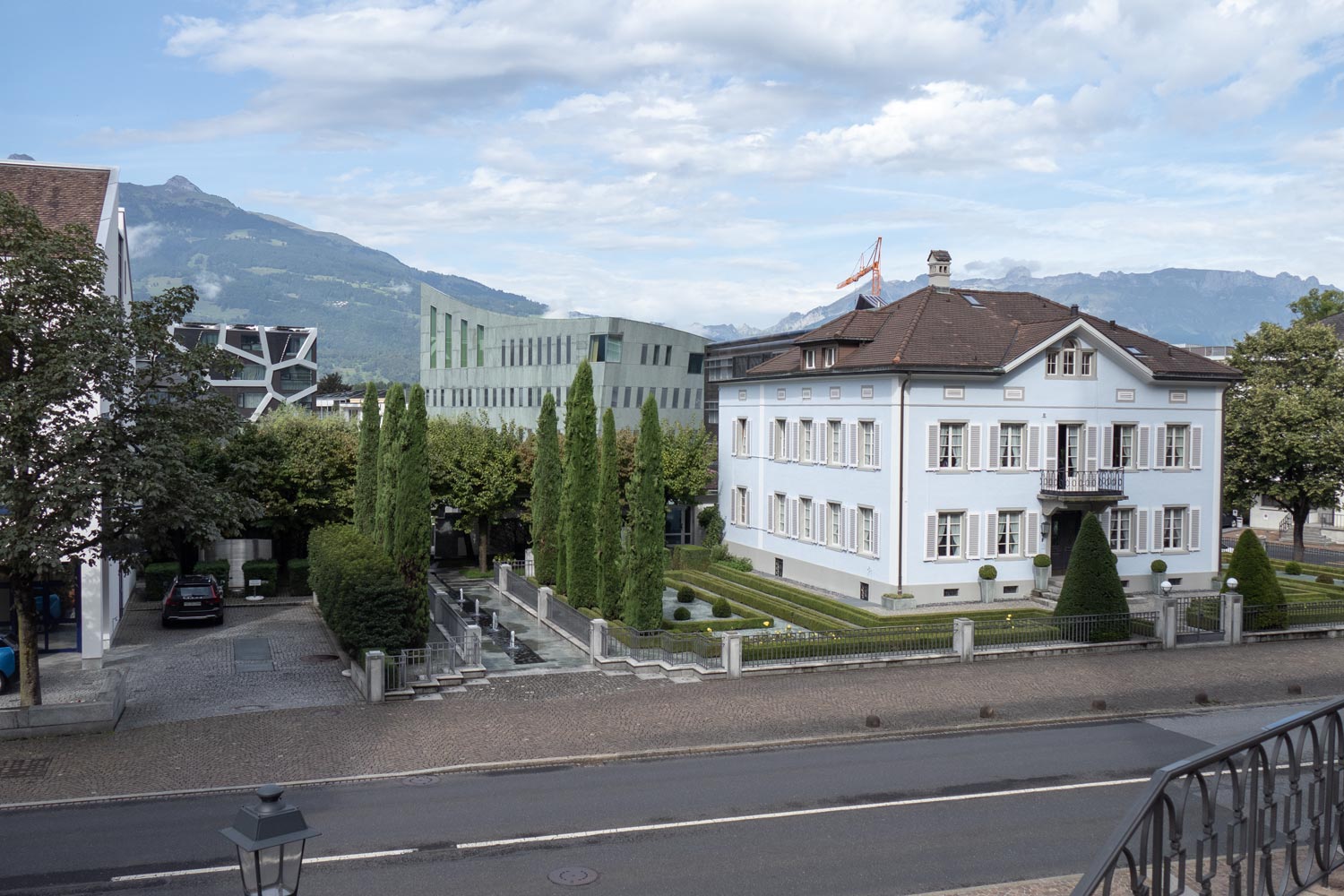
Mountain views from everywhere.
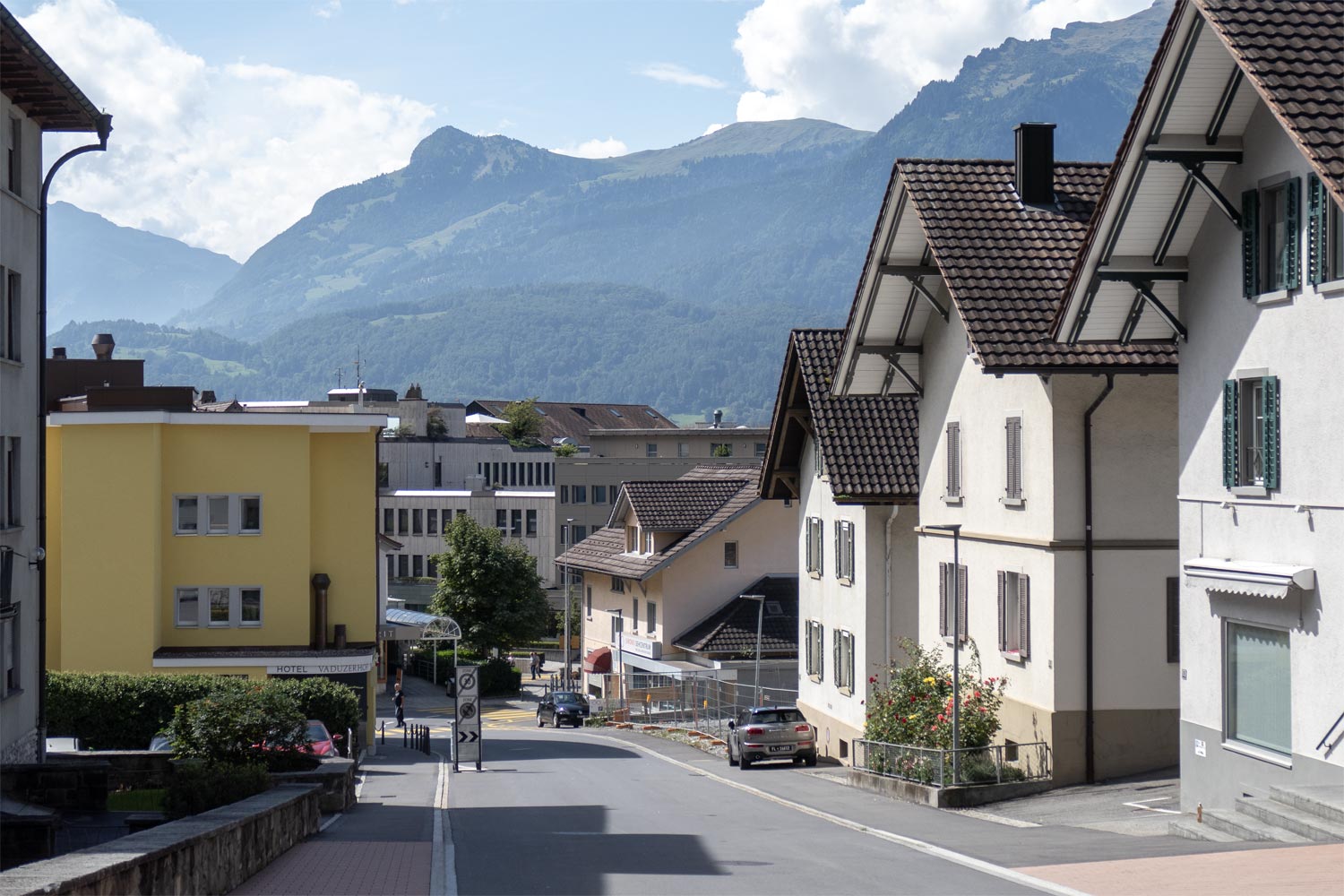
Everything is so clean and tidy that eye is twitching.
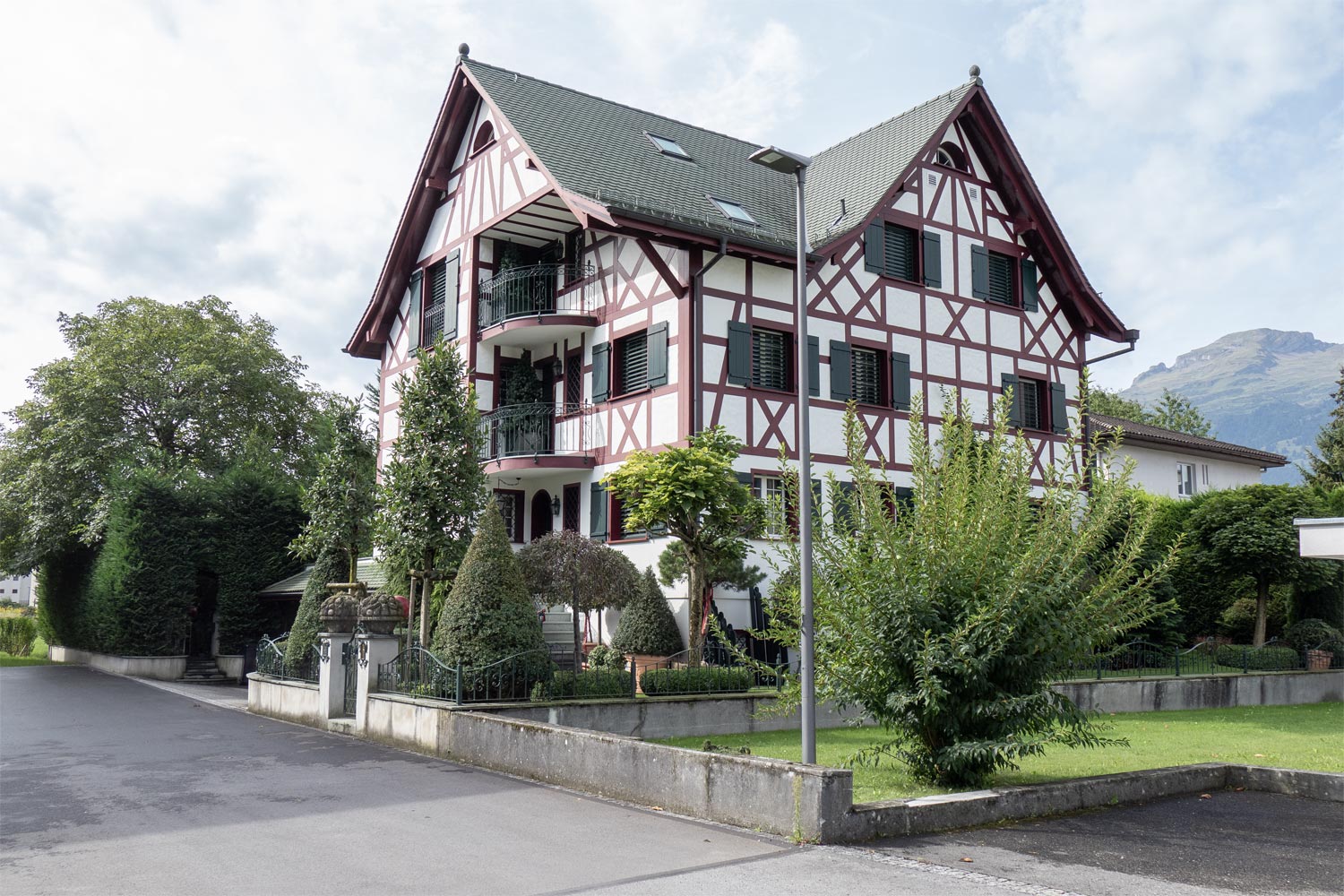
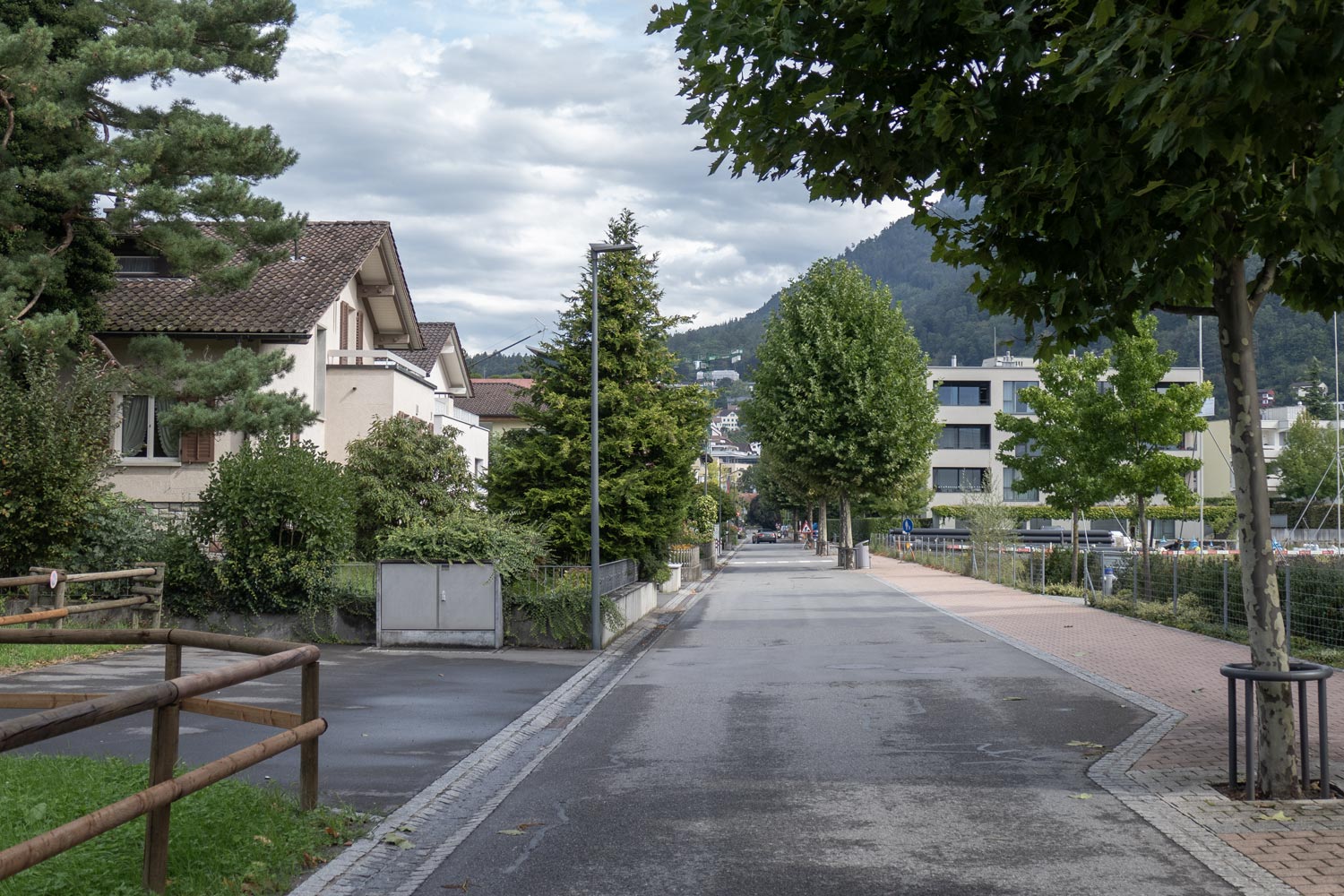
Most of Vaduz is occupied by private houses, but on the outskirts of the city, can be found few multi-story buildings. Well, “multi-story” might be an overstatement... they are five-story buildings. They are like skyscrapers here.
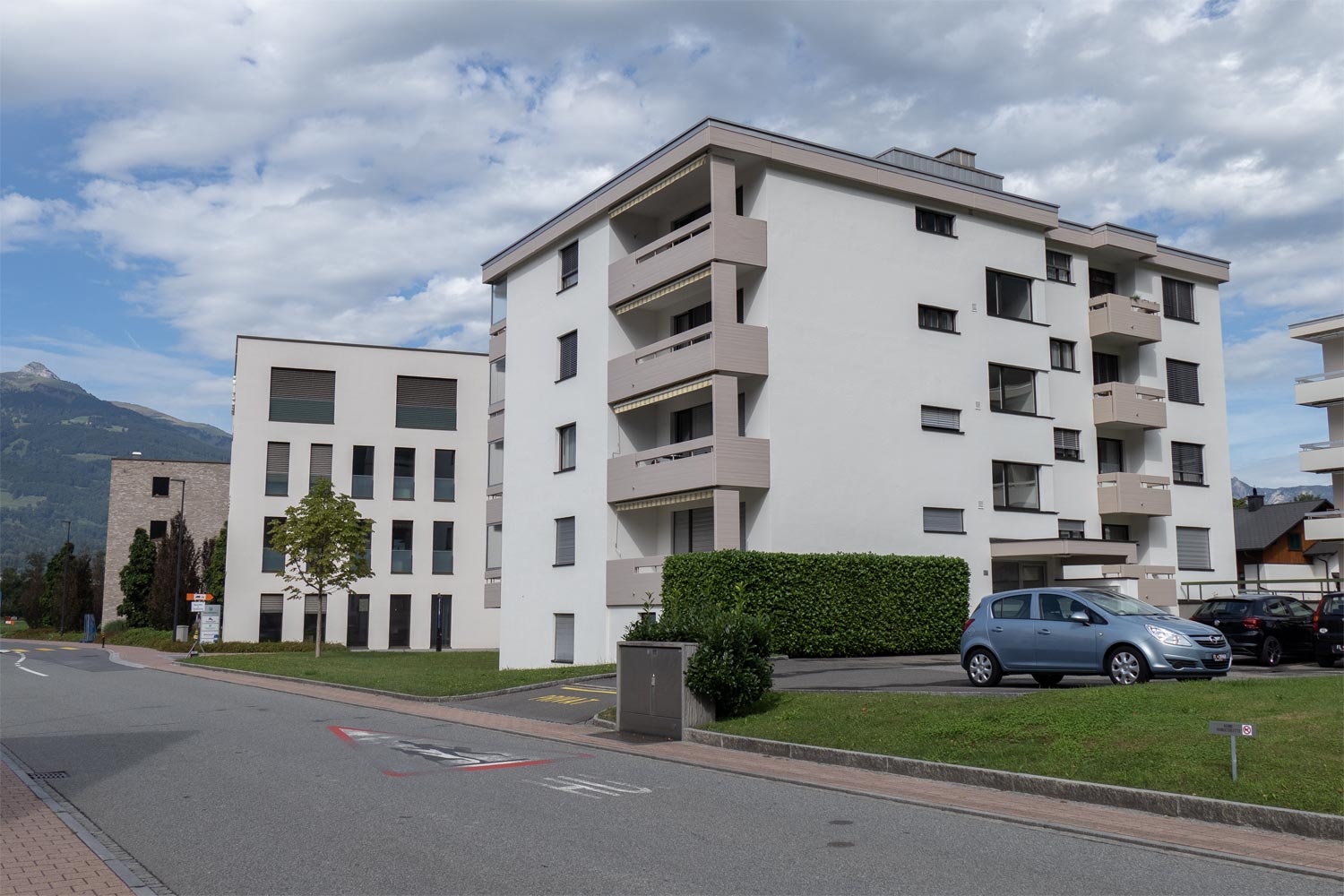
Perhaps the biggest challenge of Vaduz is its remoteness. There is no airport in all of Liechtenstein, so residents have to travel to Zurich Airport, which takes several hours and means crossing into another country, for a second.
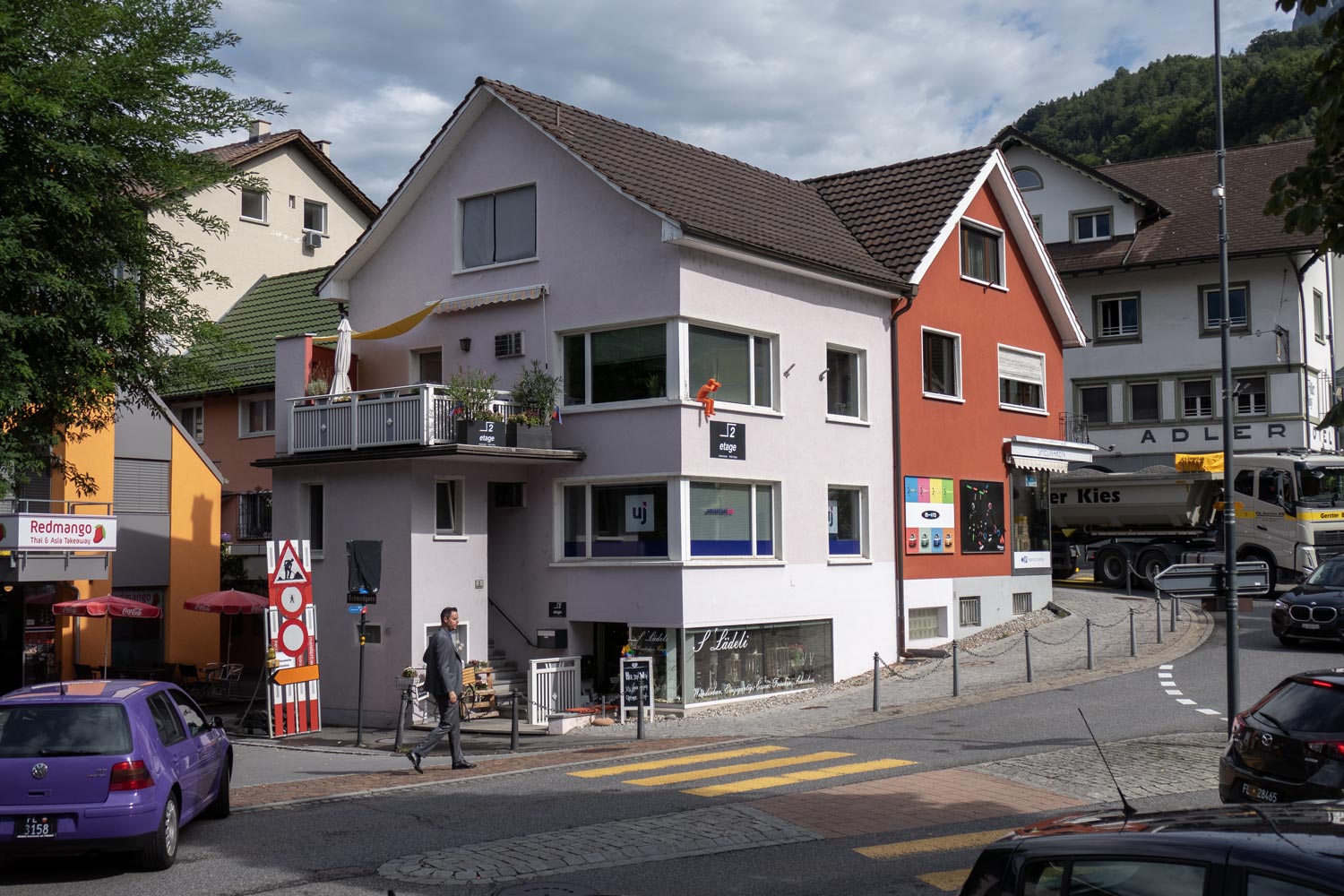
On the other hand, that’s the main feature. The country is maximally removed from the hustle and bustle. People in Liechtenstein live peacefully, and they don’t need anything else. Taxes are low, and the government doesn’t bother them. It’s beautiful.
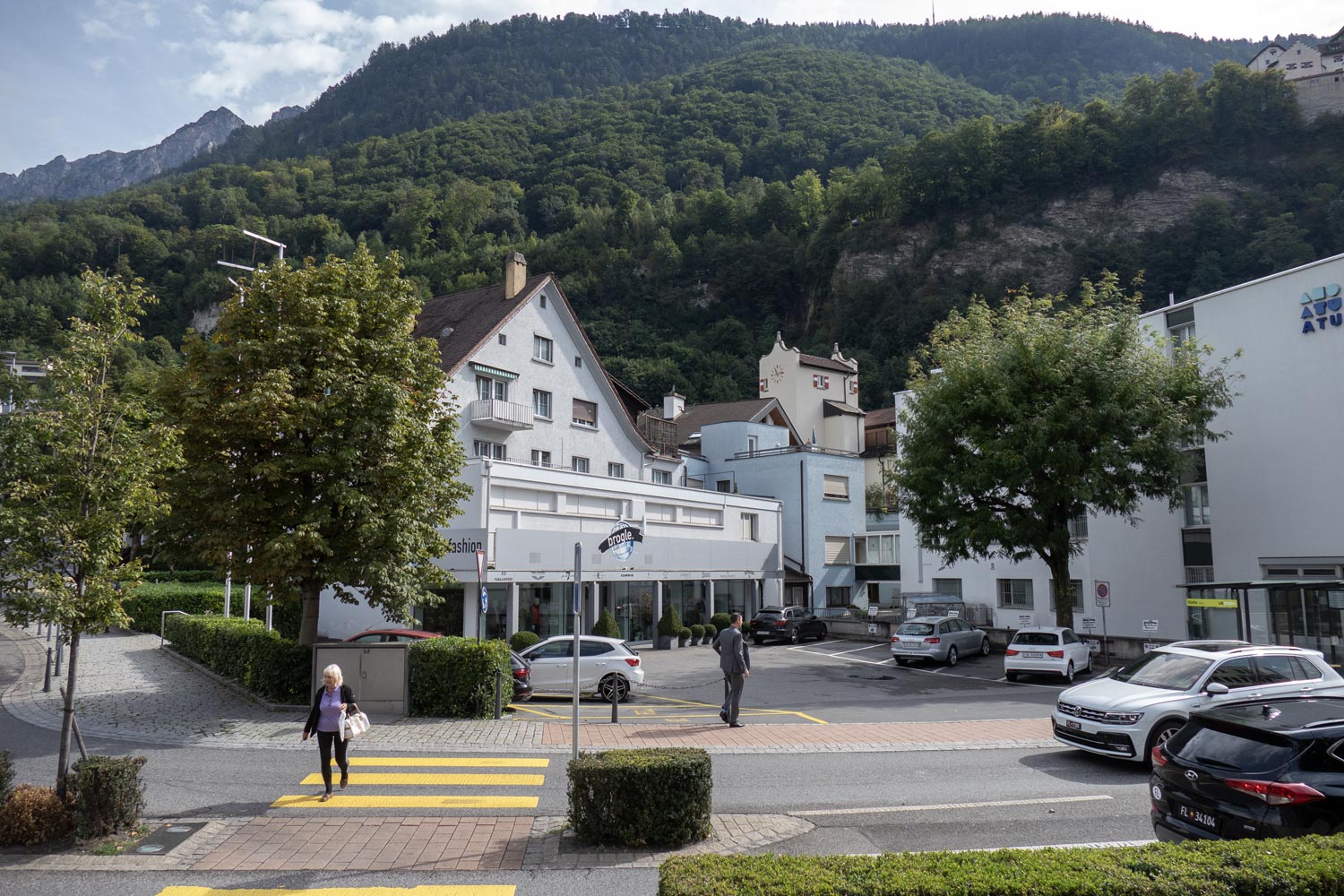
In five minutes from the city center begin vineyards.
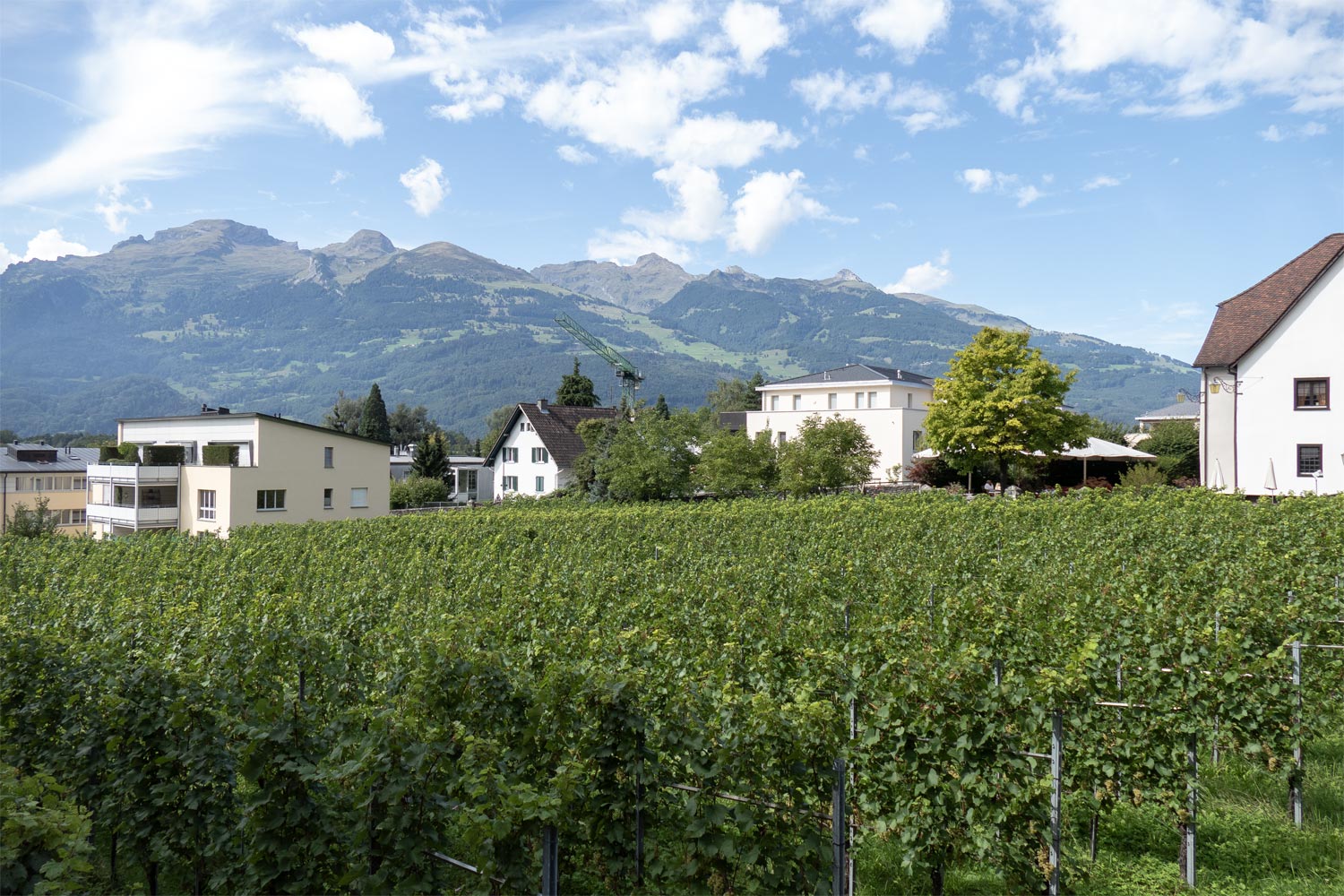
They are also private. People live in a regular apartment, and next to it, they have their own vineyard.
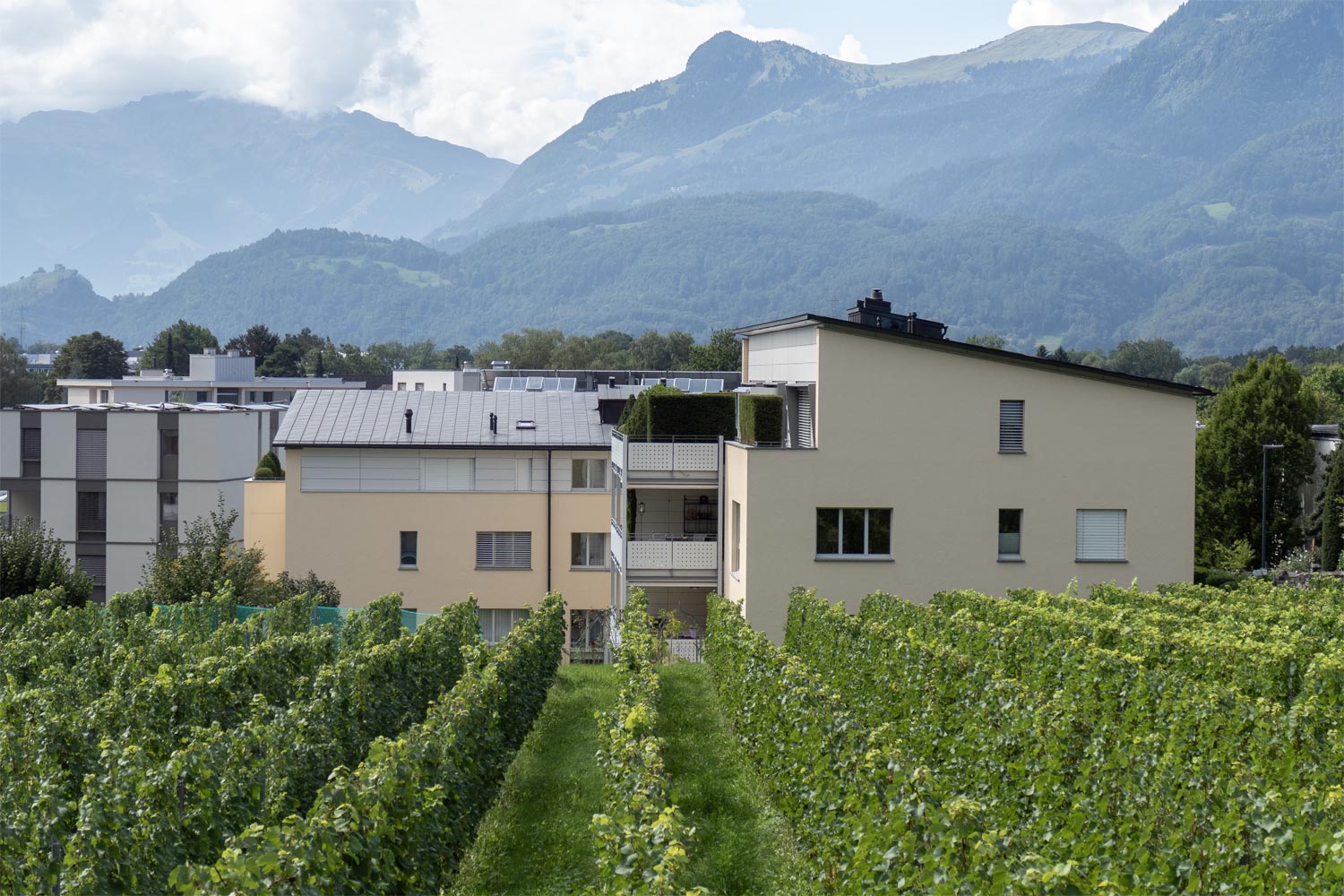
A bicycle path is laid through the vineyards.
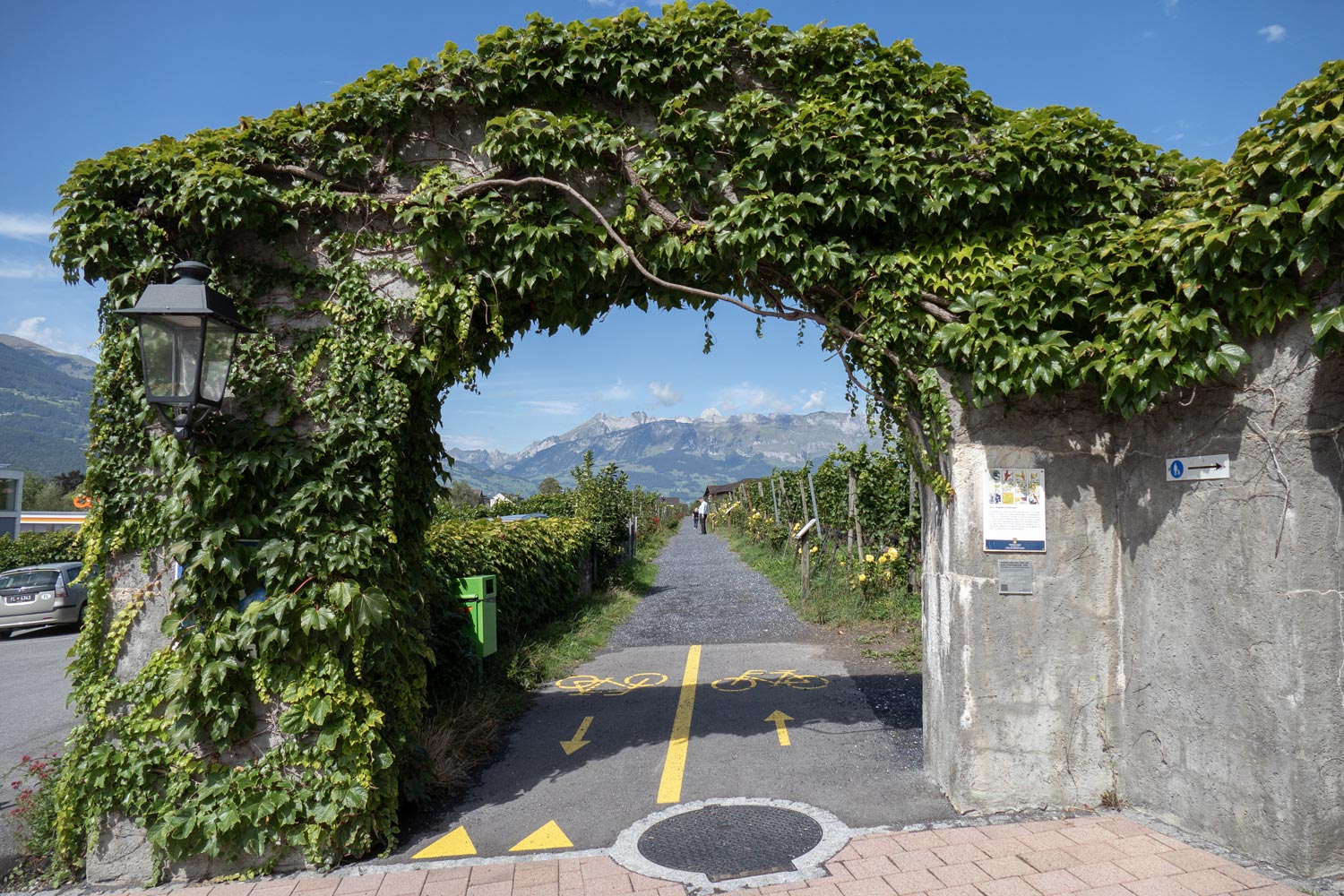
Tourists in Liechtenstein are rare. There are a few hotels in the city, but the prices there are astronomical. That’s why most people come by bus from Zurich in the morning, explore the city, and return back in the evening.
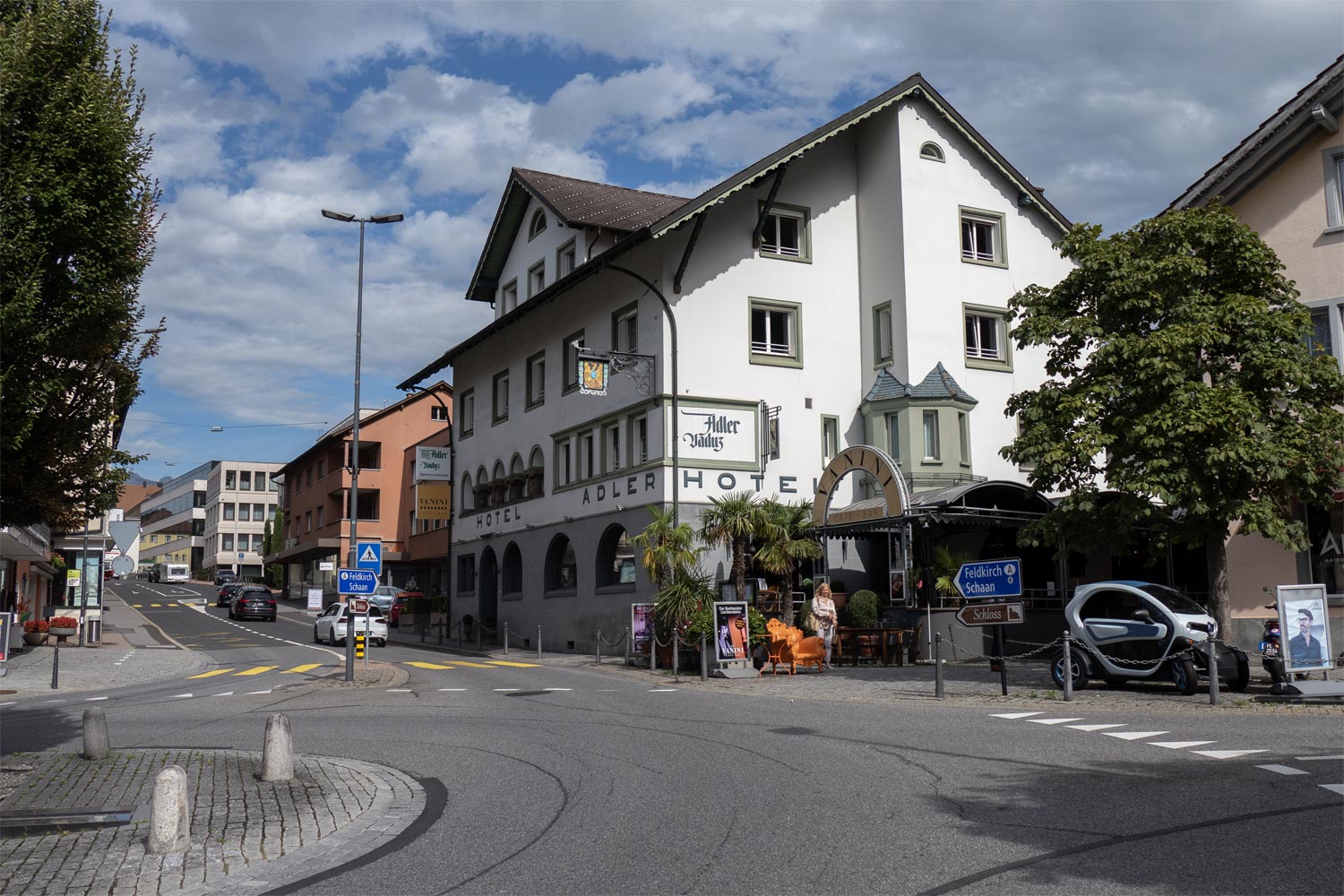
Apart from the castle, Vaduz has exactly one landmark — a beautiful cathedral from the late 19th century. I think I had a puzzle with this church when I was a child.
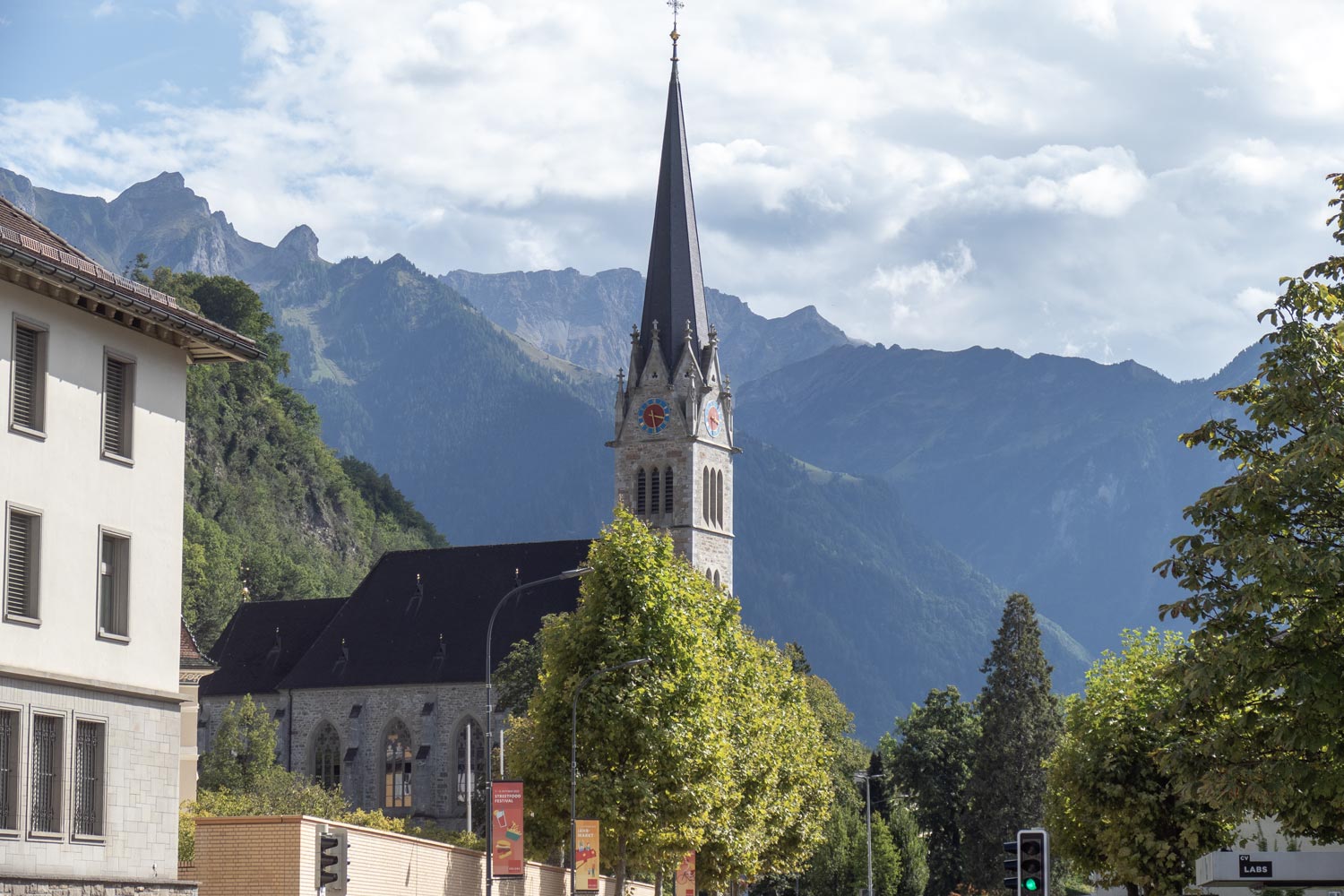
This is how lives the freest and wealthiest country in the world, a modern monarchy led by a prince-anarchist. Beauty and calmness. And the detonated ass of democrats.
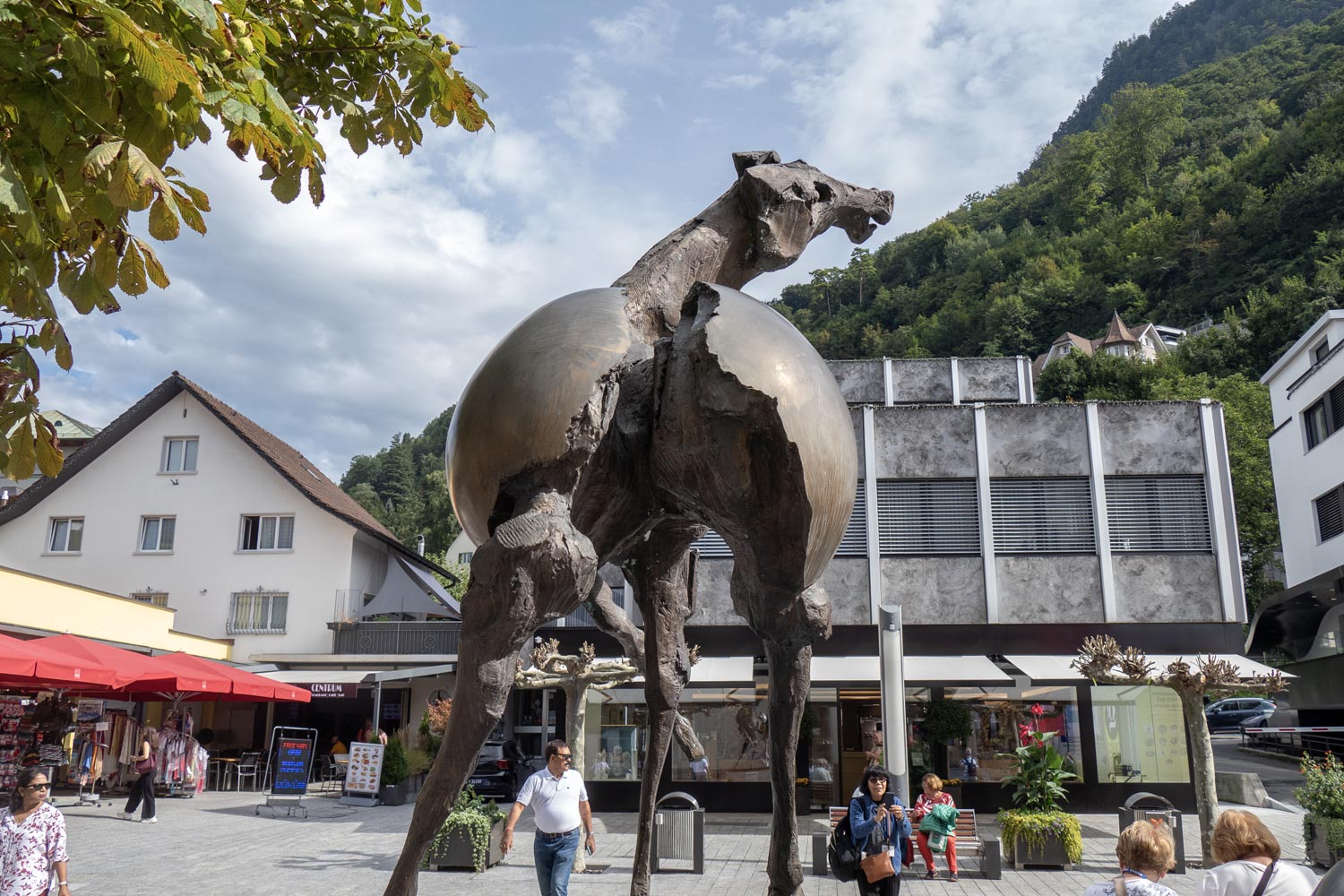
Oh come on, I say with love!
